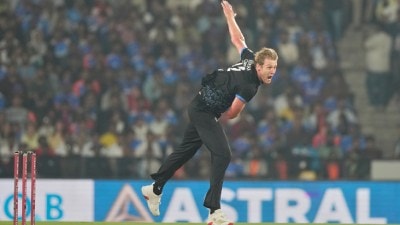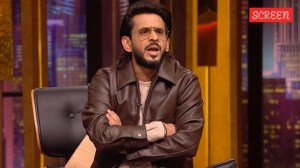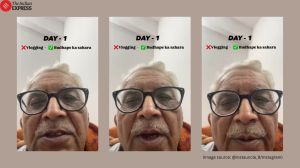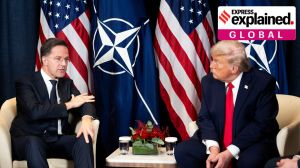Because it146;s the world, stupid
So how different will America8217;s foreign policy be, will it really be so different, if John Kerry is elected president of the US 8212; ...

So how different will America8217;s foreign policy be, will it really be so different, if John Kerry is elected president of the US 8212; is the question popping up in the papers, from Europe to the Middle East. The Democratic convention, and Kerry8217;s speech in particular, was pronounced to be successfully staged. Now it8217;s the time to wonder just how much the Bush-Kerry race hinges on character and how much on policy. More particularly, foreign policy.
Because it8217;s the world, stupid. Newsweek pronounced it to be the first time since 1972 that world affairs has dominated a campaign. So will President Kerry bring something different to the table?
James P. Rubin thinks so. He would 8212; he is senior foreign-policy adviser to Kerry8217;s campaign. But even he ended up sounding remarkably tightfisted about the change. He told Newsweek that the difference is that Kerry will be just as 8216;8216;tough8217;8217; as Bush on Al Qaeda and terrorists but a 8216;8216;lot smarter8217;8217; in how he gathers support of other countries. He promised a Kerry smartness on dealing with the world outside of terror and war as well, 8216;8216;whether it8217;s communication or travel or the computer revolution8217;8217;.
Meanwhile, the ranks of those who would love for Bush to lose but are 8216;8216;rightfully muttering about the uncertain trumpet represented by John Kerry8217;8217;, continue to grow. This week in Britain, influential columnist Timothy Garton Ash explained in the Guardian why he thinks Europeans should be 8216;8216;cautious recruits to a President Kerry8217;s war on terrorism8217;8217;.
Kerry is standing for the same office, he warned, of 8216;8216;commander in chief8217;8217;. He pointed to the war-like images and the Vietnam veterans that dominated the Democratic convention. The campaign on both sides is essentially a war show. So, if Kerry wins, it won8217;t be back to business as usual before September 11 2001. The dissonance 8212; 8216;8216;all American leaders think we are at war; most European leaders think we are still at peace8217;8217; 8212; will fester on.
But in Lebanon, The Daily Star held on to its optimism that the world will change in November. In an editorial, it urged Arab governments to seek closer involvement with the European Union because President Kerry is likely to consult America8217;s European partners on Middle East peace and reform. 8216;8216;By coordinating with the EU now, our leaders can ensure the formation of a common position with which Kerry will have to engage if elected8217;8217;.
Talking orange
In the American conversation, the theme is fear. 8216;8216;Fortresses of Fear8217;8217;, The Washington Post commented on the hectic activity by US security officials to close off more and more streets in Washington. It worried about the tipping of the precarious balance towards security and away from openness in the week when Washington joined New York on the second highest level of terror alert, Bush announced the creation of a new national intelligence director and another poll said the military is by far the most trusted institution in the US.
Fear only takes second place to the conspiracy theories. Many are now openly articulating the conviction that as the campaigns roll towards November, George Bush is orchestrating a well-timed scene-stealer in the war on terror. You don8217;t even have to be a conspiracy theorist, others say, to wonder whether the new orange threat level has an electoral dimension.
A new actor
The New York Times visited Makrauna Kalan in Punjab and came away with a stern verdict: 8216;8216;Iraq itself may not yet be a democracy, but its insurgents are quickly learning that whether in India or the Phillipines, it often does not take much to pressure one8217;8217;.
The paper described how 24/7 tv has become a crucial protagonist in the hostage drama in India. For some, it is a 8216;8216;cheering reminder8217;8217; of the power of the poor in a media age: they cannot be ignored. The government must show that it cares.
But the NYT wasn8217;t lingering on the bright side. It pointedly recounted eight days in 1999, also shown uninterrupted on television, that ended with then Foreign Minister Jaswant Singh negotiating a deal and escorting three militants to freedom.
- 01
- 02
- 03
- 04
- 05






























